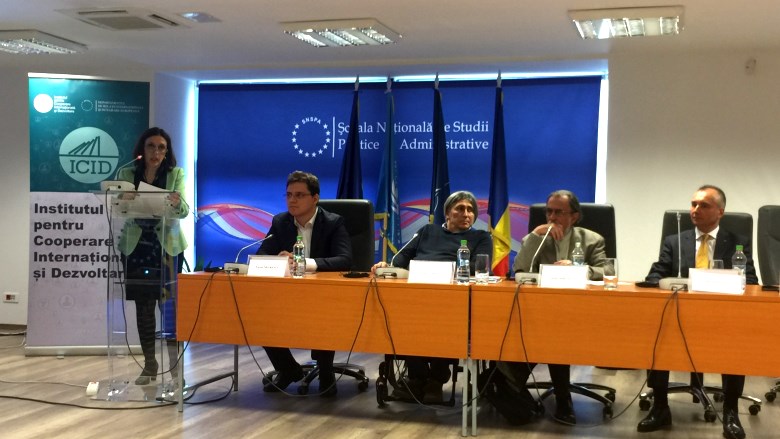Dear Rector, distinguished guests and colleagues,
Thank you for the invitation to attend today’s event. I welcome the initiative of the National School of Political and Administrative Studies (SNSPA) to host this conference focused on poverty and measures to reduce it and increase inclusion.
The World Bank Group is a global development organization which has two overarching institutional goals - reduce poverty and boost shared prosperity, or in other words increase prosperity for the bottom 40 percent of the population. Dramatic successes were achieved in the past two decades in reducing poverty. Our goal is to bring poverty to less than 3 percent of the world’s population by 2030, but hurdles remain in reaching this target. According to our latest data almost 900 million people continue to live in extreme poverty around the world (defined as less than $1.90 per day), hundreds of millions go hungry every day, and almost 7 million children under five are dying every year. Addressing inequality is therefore central to global efforts to further reduce poverty.
In Romania, the World Bank has contributed over the past two and a half decades towards addressing policy and institutional constraints to poverty reduction and inclusive growth, supporting structural reforms in the public sector focused on reducing inefficiencies, unlocking the country’s development potential and supporting investments in the private sector to spur job creation and greater economic opportunity.
Our current Country Partnership Strategy with Romania is built on three pillars of engagement – building a 21st century government, supporting growth and job creation, and supporting greater social inclusion. We believe these three pillars are essential for poverty reduction efforts and helping the poorest fully benefit from Romania’s growth trajectory in recent years.
Romania has taken important steps in recent years in fighting poverty and sustaining development. However, 40.2 percent of the people remain at risk of poverty and social exclusion according to Eurostat data (the highest percentage in the European Union) and poverty is three times higher in rural than in urban areas. Key development disparities continue to prevail especially between urban and rural areas, hampering the achievement of national economic and social development targets. In Romania, 46 percent of the population live in rural areas, where human capital is severely under-utilized and pockets of poverty and social exclusion prevail. Poverty rates for rural population are increased by the demographic challenge and migration.
Three-quarters of the poor have been poor for at least three years, which means that poverty is persistent. Poverty is also persistent across generations - children born into poor families have fewer opportunities for a better life, partly because they never attend school, or if they do attend they drop out of school early. Lacking the basic skills required for getting a job as young adults they join their parents and communities in informal employment, inactivity and at times delinquency.

